WASHINGTON—The high court decided 5–4 to uphold the Patient Protection and Affordable Care Act (ACA), sometimes called “Obamacare.” The entire ACA is constitutional, including the controversial individual mandate. The mandate requires every adult, with a few exceptions, to purchase health insurance by 2014 or pay a penalty. Of all the provisions in the Act, the individual mandate is the most unpopular.
The four liberal justices, Ruth Bader Ginsburg, Stephen Breyer, Sonia Sotomayor, and Elena Kagan, needed the vote of the conservative Chief Justice John Roberts Jr. in order to prevail. Most court observers expected Justice Anthony Kennedy would be the swing vote, but it was the Chief Justice who played that role and saved the ACA.
Roberts’s vote surprised most observers. “Today, Chief Justice John Roberts delivered a heroic rebuke to the growing number of Americans who feared the Supreme Court had lost the ability to rise above the narrow-minded partisanship that dominates the country’s political discourse,” said Laurence Tribe, professor of constitutional law at Harvard Law School.
Justice Kennedy wrote the dissenting opinion that would have nullified the ACA. He was joined by Justices Antonin Scalia, Samuel Alito, and Clarence Thomas.
Overall, the decision is a win for the Obama administration. However, seven justices held that the statute’s Medicaid expansion could not withdraw all Medicaid funding from state governments that chose not to participate in the new coverage provisions.
The court upheld the provision allowing Congress to expand Medicaid coverage to millions of persons without health insurance. However, only the funds allocated to cover Congress’s new eligibility requirements under the ACA could be withheld. The court determined that the federal government would be overreaching if it terminated all funding to a state’s existing Medicaid program for choosing not to participate in the expansion.
Lyle Denniston, an American legal journalist who has reported on the Supreme Court of the United States for 51 years, quotes Justice Ginsburg, “Seven members of the Court ... buy the argument that prospective withholding of anticipated funds exceeds Congress’s spending power.”
The Reaction
Minutes after the announcement of the high court, the president and his presumed Republican opponent, Romney, made prepared statements.
Barack Obama said that the principle underlying the Affordable Care Act was affirmed by the court. “In the wealthiest nation on Earth, no illness or accident should lead to any family’s financial ruin,” he said.
The president enumerated the popular features of the law:
“Insurance companies can no longer impose lifetime limits on the amount of care you receive. They can no longer discriminate against children with pre-existing conditions. They can no longer drop your coverage if you get sick. They can no longer jack up your premiums without reason … Young adults under the age of 26 are able to stay on their parent’s health care plans, a provision that’s already helped 6 million young Americans … Seniors receive a discount on their prescription drugs.”
He acknowledged that the provision requiring nearly everyone have health insurance coverage was “politically unpopular,” but he said it was necessary to hold down the costs of premiums. If healthy people waited until they got sick before purchasing health insurance, the required revenues to cover those with pre-existing conditions would not be sufficient, he said.
Republican presidential candidate Mitt Romney vowed he would work to “repeal and replace Obamacare,” the first day he was president. The Supreme Court may have found Obamacare constitutional, but it didn’t say it was good policy or good law, he said.
“Obamacare raises taxes on the American people by $500 billion. Obamacare cuts Medicare $500 billion. And even with these cuts and tax revenues, Obamacare adds trillions to our deficits and national debt and pushes those obligations to coming generations,” Romney said.
He continued, “Obamacare is a job killer. Businesses across the county were asked the impact Obamacare would have … three-fourths of those surveyed by the Chamber of Commerce say Obamacare makes it less likely for them to hire people. Perhaps most troubling of all, Obamacare puts the federal government between you and your doctor.”
House Speaker John Boehner (R-Ohio) said, “The president’s health care law is hurting our economy by driving up health costs and making it harder for small businesses to hire. Today’s ruling underscores the urgency of repealing this harmful law in its entirety.”
The president and the Democratic leadership urged an end to the quarreling, suggesting that we put this matter behind us, and move forward with the nation’s other business. But the Republicans remain determined to repeal Obamacare.
Legal Issues
The majority opinion did not agree on the justification for upholding the ACA. The liberal justices wrote that the individual mandate was constitutional because of Congress’s power to regulate interstate commerce. Chief Justice Roberts did not agree that the Commerce Clause was applicable and wrote his own separate opinion upholding the law for a different reason.
“The framers knew the difference between doing something and doing nothing. They gave Congress the power to regulate commerce, not to compel it. Ignoring that distinction would undermine the principle that the federal government is a government of limited and enumerated powers,” writes Roberts.
Thus, the majority of the justices did not uphold the individual mandate under the Commerce Clause, which regulates interstate commerce.
However, Roberts found that the ACA was constitutional because of Congress’s taxing power. On this question, the liberal justices agreed with Roberts.
One can be taxed just for existing, said Roberts, noting the passive nature of a tax versus the need for an activity for the Commerce Clause to regulate. Of course, if the requirement is a “tax,” then it must be paid to the Internal Revenue Service, which is permitted under Congress’s power granted in the Taxing and Spending Clause.
The reasoning behind Roberts’s decisions was well captured by Tribe, on SCOTUSblog, June 28. “This law doesn’t literally force anybody to do anything; it just increases the tax liability of those who refuse to buy insurance,” Tribe said, quoting himself many months ago.
Legal scholars are debating the meaning of this opinion. It is significant that five justices rejected the argument that the Commerce Clause justifies the individual mandate. However, normally Congress would only try to regulate interstate commerce for activities--not inactivities such as not purchasing a product. Professor of constitutional law at Georgetown University Law Center, Louis Michael Seidman, opined that “what happened today does not impose a severe limitation on Congress’s ability to regulate under the Commerce Clause.”
When arguing the case before the Supreme Court in March, Solicitor General Donald Verrilli made the Commerce Clause his primary reason for the constitutionality of the ACA. Congress’s power to tax, was only a third “backup” argument.
The Republicans are likely to seize on this rendering of a tax as a new campaign issue, and claim that Obamacare is imposing new taxes.
Medicaid Expansion
It still too early to fully assess the impact of the court’s decision to disallow penalizing states that choose not to participate in the Medicaid expansion under the ACA. The Court’s decision allows the states to opt-out of the Medicaid expansion provision without losing their entire Medicaid program, which would be devastating.
Initially states will receive federal funds to cover 100 percent of the costs for the Medicaid expansion. But that percentage gradually diminishes, so that by 2020, the federal government will pay only 90 percent, and states will have to come up with the rest. After 2020, the percentages stay fixed. With state budgets tight, even 10 percent may be perceived as unaffordable.
Seidman said it was the first time since the New Deal in the 1930s that the Supreme Court struck down the Spending Clause because “it invaded state sovereignty.”
However, the court treated Medicaid, and the Medicaid expansion under the ACA, as if they were two distinct programs, Seidman said.
“It’s anybody’s guess” what this decision on the Medicaid expansion will ultimately mean for other Congressional spending programs, he said.
The Epoch Times publishes in 35 countries and in 19 languages. Subscribe to our e-newsletter.
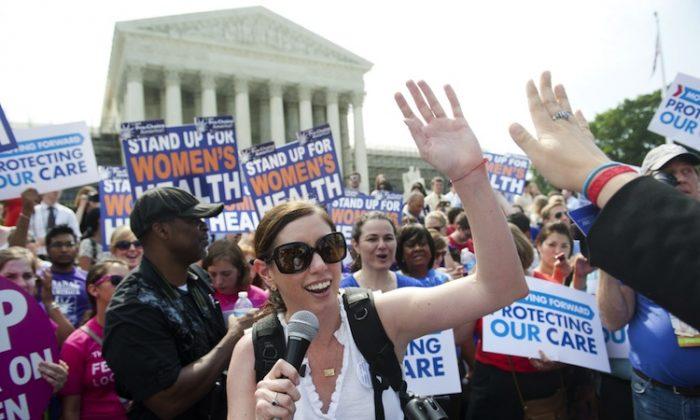
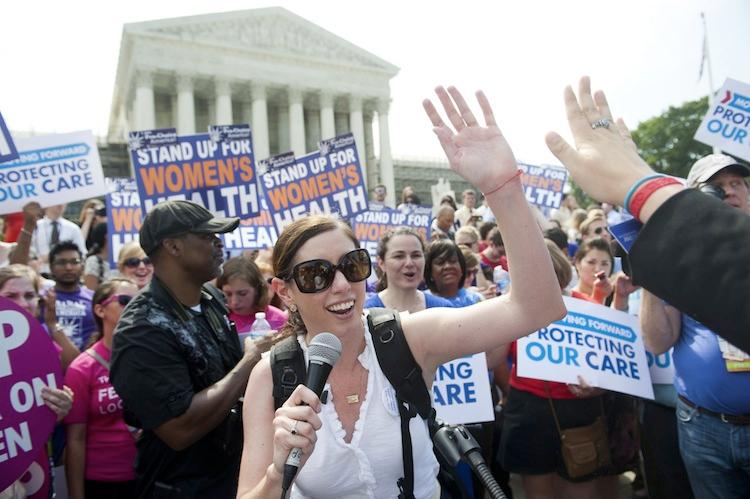
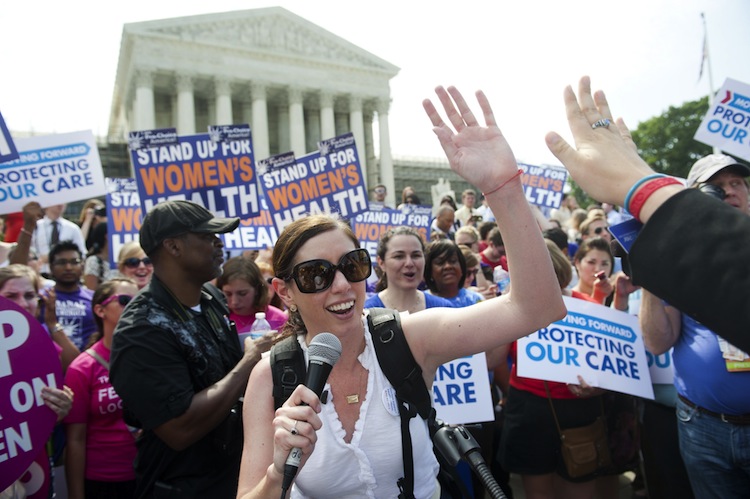
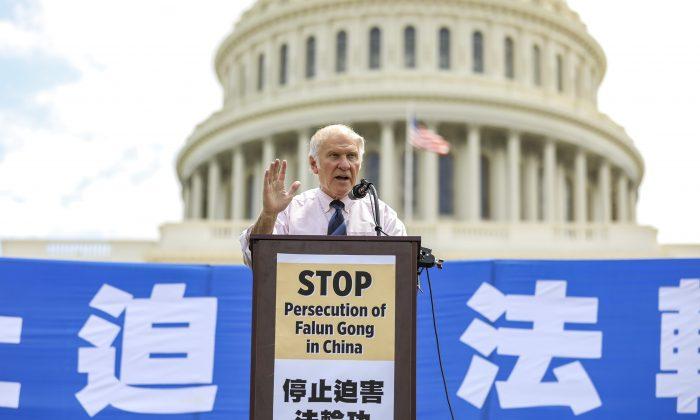
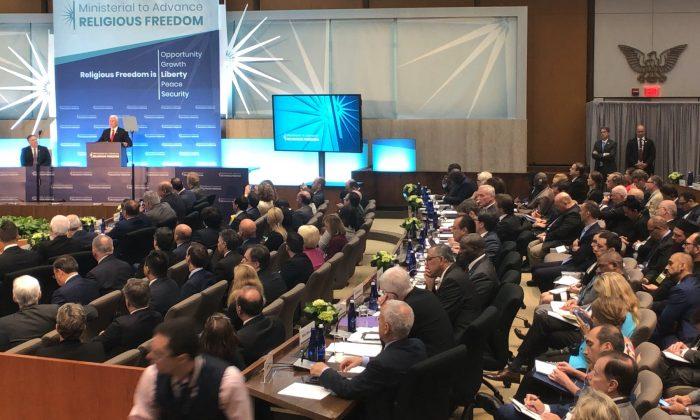


Friends Read Free